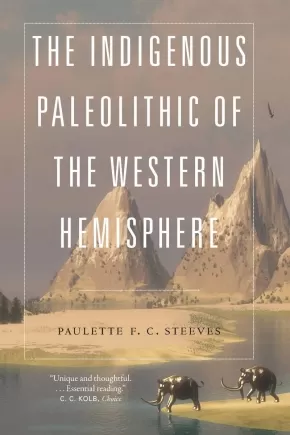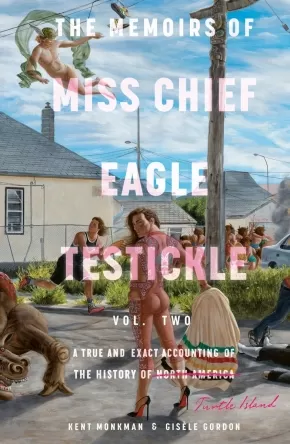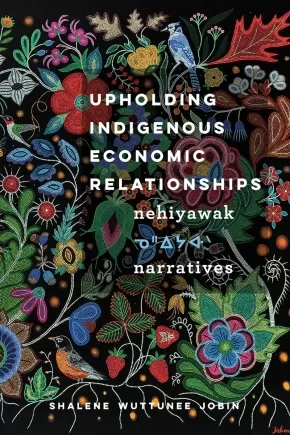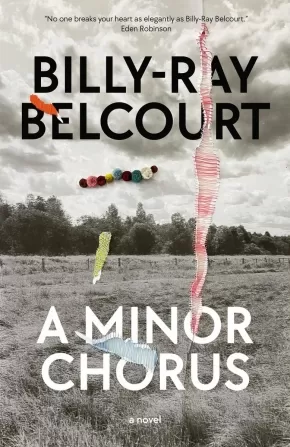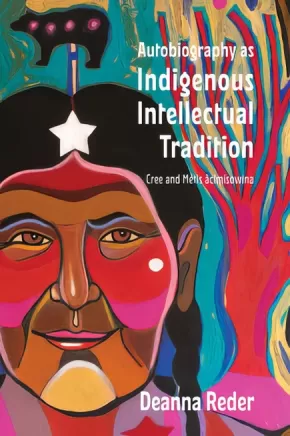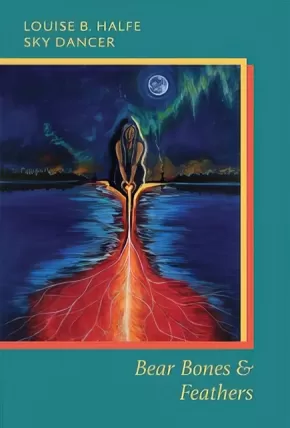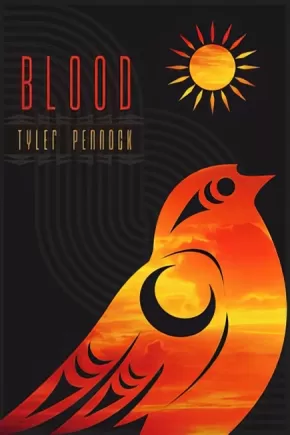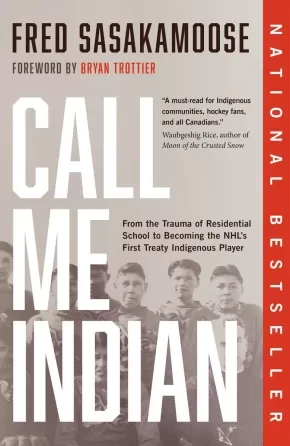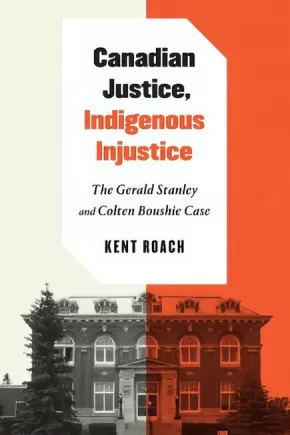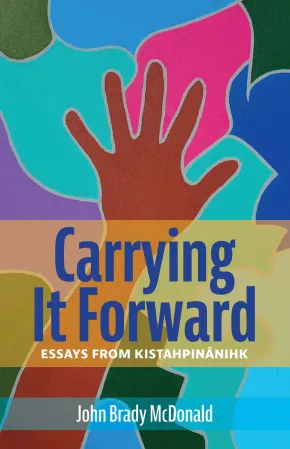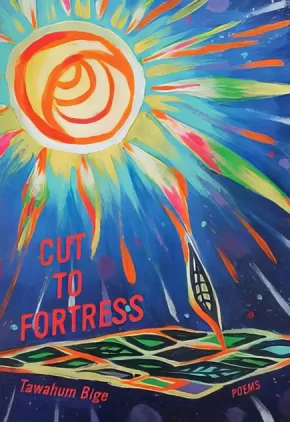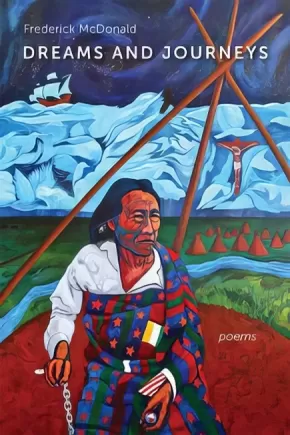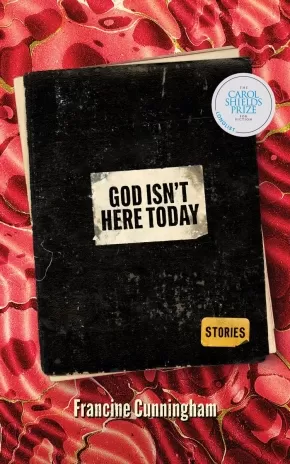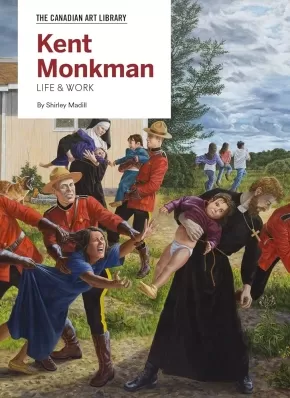Cree (Nehiyawak)
Synopsis:
The Indigenous Paleolithic of the Western Hemisphere is a reclaimed history of the deep past of Indigenous people in North and South America during the Paleolithic. Paulette F. C. Steeves mines evidence from archaeology sites and Paleolithic environments, landscapes, and mammalian and human migrations to make the case that people have been in the Western Hemisphere not only just prior to Clovis sites (10,200 years ago) but for more than 60,000 years, and likely more than 100,000 years.
Steeves discusses the political history of American anthropology to focus on why pre-Clovis sites have been dismissed by the field for nearly a century. She explores supporting evidence from genetics and linguistic anthropology regarding First Peoples and time frames of early migrations. Additionally, she highlights the work and struggles faced by a small yet vibrant group of American and European archaeologists who have excavated and reported on numerous pre-Clovis archaeology sites.
In this first book on Paleolithic archaeology of the Americas written from an Indigenous perspective, The Indigenous Paleolithic of the Western Hemisphere includes Indigenous oral traditions, archaeological evidence, and a critical and decolonizing discussion of the development of archaeology in the Americas.
Reviews
Additional Information
328 pages | 6.00" x 9.00" | 2 photographs, 8 illustrations, 5 maps, 7 tables, 1 appendix, index | Paperback
Synopsis:
From global art superstar Kent Monkman and his longtime collaborator Gisèle Gordon, a transformational work of true stories and imagined history that will remake readers' understanding of the land called North America.
For decades, the singular and provocative paintings by Cree artist Kent Monkman have featured a recurring character—an alter ego of sorts, a shape-shifting, time-travelling elemental being named Miss Chief Eagle Testickle. Though we have glimpsed her across the years, and on countless canvases, it is finally time to hear her story, in her own words. And, in doing so, to hear the whole history of Turtle Island anew. The Memoirs of Miss Chief Eagle Testickle: A True and Exact Accounting of the History of Turtle Island is a genre-demolishing work of genius, the imagined history of a legendary figure through which a profound truths emerge—a deeply Cree and gloriously queer understanding of our shared world, its past, its present, and its possibilities.
Volume Two, which takes us from the moment of confederation to the present day, is a heartbreaking and intimate examination of the tragedies of the nineteenth and twentieth century. Zeroing in on the story of one family told across generations, Miss Chief bears witness to the genocidal forces and structures that dispossessed and attempted to erase Indigenous peoples. Featuring many figures pulled from history as well as new individuals created for this story, Volume Two explores the legacy of colonial violence in the children’s work camps (called residential schools by some), the Sixties Scoop, and the urban disconnection of contemporary life. Ultimately, it is a story of resilience and reconnection, and charts the beginnings of an Indigenous future that is deeply rooted in an experience of Indigenous history—a perspective Miss Chief, a millennia-old legendary being, can offer like none other.
Blending history, fiction, and memoir in bold new ways, The Memoirs of Miss Chief Eagle Testickle are unlike anything published before. And in their power to reshape our shared understanding, they promise to change the way we see everything that lies ahead.
Additional Information
264 pages | 6.79" x 10.26" | Hardcover
Synopsis:
Upholding Indigenous Economic Relationships explains settler colonialism through the lens of economic exploitation, using Indigenous methodologies and critical approaches. What is the relationship between economic progress in the land now called Canada and the exploitation of Indigenous peoples? And what gifts embedded within Indigenous world views speak to miyo‐pimâtisiwin ᒥᔪ ᐱᒫᑎᓯᐃᐧᐣ (the good life), and specifically to good economic relations?
Shalene Wuttunee Jobin draws on the knowledge systems of the nehiyawak ᓀᐦᐃᔭᐊᐧᐠ (Cree people) – whose distinctive principles and practices shape their economic behaviour – to make two central arguments. The first is that economic exploitation was the initial and most enduring relationship between newcomers and Indigenous peoples. The second is that Indigenous economic relationships are constitutive: connections to the land, water, and other human and nonhuman beings form who we are as individuals and as peoples. This groundbreaking study employs Cree narratives that draw from the past and move into the present to reveal previously overlooked Indigenous economic theories and relationships, and provides contemporary examples of nehiyawak renewing these relationships in resurgent ways. In the process, Upholding Indigenous Economic Relationships offers tools that enable us to reimagine how we can aspire to the good life with all our relations.
This study will interest not only scholars and students of Indigenous studies, particularly Cree studies, but also Indigenous community members involved in community and economic development, planning, and governance.
Reviews
"Beautifully written, Upholding Indigenous Economic Relationships is crucially important as a comprehensive exploration of Cree economic values told through story and oral history." -
"Shalene Jobin’s refreshing perspective on a prairie First Nations community is a desperately needed contribution to Indigenous studies as well as history, anthropology, and Canadian studies." -
Educator Information
Table of Contents
Preface
1 Grounding Methods
2 Grounding Economic Relationships
3 nehiyawak Peoplehood and Relationality
4 Canada’s Genesis Story
5 ᐃᐧᐦᑎᑯᐤ Warnings of Insatiable Greed
6 Indigenous Women’s Lands and Bodies
7 Theorizing Cree Economic and Governing Relationships
8 Colonial Dissonance
9 Principles Guiding Cree Economic Relationships
10 Renewed Relationships through Resurgent Practices
11 Upholding Relations
Postscript
Glossary of Cree Terms
Notes; References; Index
Additional Information
272 pages | 6 x 9" | Paperback
Synopsis:
An urgent first novel about breaching the prisons we live inside from one of Canada’s most daring literary talents.
An unnamed narrator abandons his unfinished thesis and returns to northern Alberta in search of what eludes him: the shape of the novel he yearns to write, an autobiography of his rural hometown, the answers to existential questions about family, love, and happiness.
What ensues is a series of conversations, connections, and disconnections that reveals the texture of life in a town literature has left unexplored, where the friction between possibility and constraint provides an insistent background score.
Whether he’s meeting with an auntie distraught over the imprisonment of her grandson, engaging in rez gossip with his cousin at a pow wow, or lingering in bed with a married man after a hotel room hookup, the narrator makes space for those in his orbit to divulge their private joys and miseries, testing the theory that storytelling can make us feel less lonely.
Populated by characters as alive and vast as the boreal forest, and culminating in a breathtaking crescendo, A Minor Chorus is a novel about how deeply entangled the sayable and unsayable can become—and about how ordinary life, when pressed, can produce hauntingly beautiful music.
Reviews
"No one breaks your heart as elegantly as Billy-Ray Belcourt. Innovative, intimate, and meticulous, A Minor Chorus is a thoughtful riot of intersections and juxtapositions, a congregation of keenly observed laments gently vivisecting the small, Northern Alberta community at its core."—Eden Robinson, author of Son of a Trickster
"The literary child of Rachel Cusk’s Outline trilogy and James Baldwin’s Giovanni’s Room, this novel builds on both, and is yet still something so new. It has the guts to centre Indigenous queer life as worthy of serious intellectual and artistic inquiry—which, of course, it always has been. We will be reading and re-reading and learning from A Minor Chorus for decades to come."—Alicia Elliott, author of A Mind Spread Out on the Ground
"An absolutely dazzling confluence of big ideas and raw emotions, told in Billy-Ray Belcourt’s singular poetic voice. A Minor Chorus is about loving, questioning, and fighting for your life, and it’s as compelling a debut novel as I’ve read in years."—Jami Attenberg, author of I Came All This Way to Meet You
"A truly exceptional novel about how the disregarded sometimes live the most remarkable lives, and how storytelling will redeem us somehow, make us less lonely. A Minor Chorus is like a song that’s over too soon; I want to play it on repeat, to memorize the words so that I can sing them to myself."—Katherena Vermette, author of The Strangers
Additional Information
192 pages | 5.20" x 7.78" | Hardcover
Synopsis:
An important language resource that helps intermediate nêhiyawêtan learners begin to understand more advanced grammar of the language.
Let’s keep on speaking Cree:
In our language is our life;
Let’s keep on speaking Cree:
In our language is our identity.
Building on mâci-nêhiyawêwin / Beginning Cree, Solomon Ratt’s first influential Cree language resource, âhkami-nêhiyawêtân / Let’s Keep Speaking Cree helps intermediate nêhiyawêtan learners begin to understand more advanced grammar of the language. The textbook is more than a language textbook though: it includes a series of the author’s original stories written in Cree, complete with comprehension questions, making it ideal for self-study as well as classroom use.
Educator & Series Information
This book builds on mâci-nêhiyawêwin / Beginning Cree.
Latest Cree language workbook by highly respected author and educator Solomon Ratt, intended for intermediate readers/speakers/
learners
First title in the Continuing Language series, which will build upon our introductory Indigenous language learner texts
Includes sections on going to the doctor, Cree culture and values, protocols, faith, humility, teachings, and more.
Additional Information
304 pages | 8.50" x 11.00" | Spiral Bound
Synopsis:
Autobiography as Indigenous Intellectual Tradition critiques ways of approaching Indigenous texts that are informed by the Western academic tradition and offers instead a new way of theorizing Indigenous literature based on the Indigenous practice of life writing.
Since the 1970s non-Indigenous scholars have perpetrated the notion that Indigenous people were disinclined to talk about their lives and underscored the assumption that autobiography is a European invention. Deanna Reder challenges such long held assumptions by calling attention to longstanding autobiographical practices that are engrained in Cree and Métis, or nêhiyawak, culture and examining a series of examples of Indigenous life writing. Blended with family stories and drawing on original historical research, Reder examines censored and suppressed writing by nêhiyawak intellectuals such as Maria Campbell, Edward Ahenakew, and James Brady. Grounded in nêhiyawak ontologies and epistemologies that consider life stories to be an intergenerational conduit to pass on knowledge about a shared world, this study encourages a widespread re-evaluation of past and present engagement with Indigenous storytelling forms across scholarly disciplines
Educator Information
Table of Contents
Synopsis:
In this new edition of her powerful debut, Plains Cree writer and National Poet Laureate Louise B. Halfe - Sky Dancer reckons with personal history within cultural genocide.
Employing Indigenous spirituality, black comedy, and the memories of her own childhood as healing arts, celebrated poet Louise B. Halfe - Sky Dancer finds an irrepressible source of strength and dignity in her people. Bear Bones and Feathers offers moving portraits of Halfe's grandmother (a medicine woman whose life straddled old and new worlds), her parents (both trapped in a cycle of jealousy and abuse), and the people whose pain she witnessed on the reserve and at residential school.
Originally published by Coteau Books in 1994, Bear Bones and Feathers won the Milton Acorn People's Poet Award, and was a finalist for the Spirit of Saskatchewan Award, the Pat Lowther Award, and the Gerald Lampert Award.
Reviews
"With gentleness, old woman's humour, and a good red willow switch, Louise chases out the shadowy images that haunt our lives. She makes good medicine, she sings a beautiful song."— Maria Campbell, author of Halfbreed
Additional Information
144 pages | 5.75" x 8.50" | Paperback
Synopsis:
Blood follows a Two-Spirit Indigenous person as they navigate urbanity, queerness, and a kaleidoscope of dreams, memory, and kinship.
Conceived in the same world as their acclaimed debut, Bones, Tyler Pennock's Blood centres around a protagonist who at first has difficulty knowing the difference between connection and pain, and we move with them as they explore what it means to want. Pennock weaves longing, intimacy, and Anishinaabe relationalities to recentre and rethink their speaker's relationship to the living--never forgetting non-human kin.
This book is a look at how deep history is represented in the everyday; it also tries to answer how one person can challenge the impacts of that history. It is a reminder that Indigenous people carry the impacts of colonial history and wrestle with them constantly. Blood explores the relationships between spring and winter, ice and water, static things and things beginning to move, and what emerges in the thaw.
Reviews
"Pennock's Blood shines on the parts of the self that defy the ruthlessness of empire. By turns inward to the still and sobering power of language, and again outward to the echoes of 'leaves and wind,' a music as sensitive as it is revelatory ushers us into his unique measure of aliveness. The poet here is engaged and unafraid to look long." — Canisia Lubrin, author of The Dyzgraphxst
Additional Information
104 pages | 5.75" x 8.50" | Paperback
Synopsis:
Trailblazer. Residential school Survivor. First Treaty Indigenous player in the NHL. All of these descriptions are true--but none of them tell the whole story.
Fred Sasakamoose, torn from his home at the age of seven, endured the horrors of residential school for a decade before becoming one of 120 players in the most elite hockey league in the world. He has been heralded as the first Indigenous player with Treaty status in the NHL, making his official debut as a 1954 Chicago Black Hawks player on Hockey Night in Canada and teaching Foster Hewitt how to pronounce his name. Sasakamoose played against such legends as Gordie Howe, Jean Beliveau, and Maurice Richard. After twelve games, he returned home.
When people tell Sasakamoose's story, this is usually where they end it. They say he left the NHL to return to the family and culture that the Canadian government had ripped away from him. That returning to his family and home was more important to him than an NHL career. But there was much more to his decision than that. Understanding Sasakamoose's choice means acknowledging the dislocation and treatment of generations of Indigenous peoples. It means considering how a man who spent his childhood as a ward of the government would hear those supposedly golden words: "You are Black Hawks property."
Sasakamoose's story was far from over once his NHL days concluded. He continued to play for another decade in leagues around Western Canada. He became a band councillor, served as Chief, and established athletic programs for kids. He paved a way for youth to find solace and meaning in sports for generations to come. Yet, threaded through these impressive accomplishments were periods of heartbreak and unimaginable tragedy--as well moments of passion and great joy.
This isn't just a hockey story; Sasakamoose's groundbreaking memoir sheds piercing light on Canadian history and Indigenous politics, and follows this extraordinary man's journey to reclaim pride in an identity and a heritage that had previously been used against him.
Reviews
“Fred Sasakamoose played in the NHL before First Nations people had the right to vote in Canada. This page turner will have you cheering for “Fast Freddy” as he faces off against huge challenges both on and off the ice—a great gift to every proud hockey fan, Canadian, and Indigenous person.”—Wab Kinew, Leader of the Manitoba NDP and author of The Reason You Walk
“Call Me Indian needs to be in every library and on every school curriculum in Canada. Fred Sasakamoose’s story is gripping and powerfully told—a story of triumph and tragedy, of great success and the perils of excess. There is laughter and tears here aplenty, but also inspiration. Characters as large as Gordie Howe and Bobby Hull are easily matched by the likes of Moosum, Freddy’s grandfather; Father Roussel, the only good to be found in residential school; George Vogan, who always believed in Fred—and Loretta, who loved him, gave him family, and ultimately saved him.”—Roy MacGregor, bestselling author of Chief: The Fearless Vision of Billy Diamond and Canadians: Portrait of a Country
Additional Information
288 pages | 5.20" x 7.94" | 8 pp 4/c photo insert
Meg Masters assisted Fred in writing his memoir. She is a Toronto-based writer and editor who has worked with many bestselling Canadian authors.
Synopsis:
Putting Gerald Stanley's acquittal for killing Colten Boushie in the context of Canada's colonial and systemic discrimination against Indigenous peoples.
In August 2016 Colten Boushie, a twenty-two-year-old Cree man from Red Pheasant First Nation, was fatally shot on a Saskatchewan farm by white farmer Gerald Stanley. In a trial that bitterly divided Canadians, Stanley was acquitted of both murder and manslaughter by a jury in Battleford with no visible Indigenous representation.
In Canadian Justice, Indigenous Injustice Kent Roach critically reconstructs the Gerald Stanley/Colten Boushie case to examine how it may be a miscarriage of justice. Roach provides historical, legal, political, and sociological background to the case including misunderstandings over crime when Treaty 6 was negotiated, the 1885 hanging of eight Indigenous men at Fort Battleford, the role of the RCMP, prior litigation over Indigenous underrepresentation on juries, and the racially charged debate about defence of property, self-defence, guns, and rural crime. Drawing on both trial transcripts and research on miscarriages of justice, Roach looks at jury selection, the controversial "hang fire" defence, how the credibility and beliefs of Indigenous witnesses were challenged on the stand, and Gerald Stanley's implicit appeals to self-defence and defence of property, as well as the decision not to appeal the acquittal. Concluding his study, Roach asks whether Prime Minister Justin Trudeau's controversial call to "do better" is possible, given similar cases since Stanley's, the difficulty of reforming the jury or the RCMP, and the combination of Indigenous underrepresentation on juries and overrepresentation among those victimized and accused of crimes.
Canadian Justice, Indigenous Injustice is a searing account of one case that provides valuable insight into criminal justice, racism, and the treatment of Indigenous peoples in Canada.
Reviews
"In a meticulously researched and documented analysis of the trial of Gerald Stanley for the killing of Boushie in 2016, Roach exposes a whole system designed to maintain inequality between Indigenous and non-Indigenous Canadians." - The Tyee
"This was a book that needed to be written. Roach, despite various reasons to be pessimistic about the future, offers practical suggestions on how the situation of Canadian justice and Indigenous injustice can be improved. But he admits himself that even these suggestions do not go far enough in rectifying the situation; this instead will take a wholescale shift in Canadian norms and values, not just in the judicial system. I wholeheartedly recommend this book to readers, both expert and general." - British Journal of Canadian Studies
Additional Information
336 pages | 6.00" x 9.00" | Paperback
Synopsis:
John Brady McDonald has lived in Kistahpinanihk, an area that includes Prince Albert, Saskatchewan, for nearly all his life. A member of the Muskeg Lake Cree Nation and a descendent of Metis leader Jim Brady, John Brady has worked to move carefully between these two nations – to learn their stories, honour their traditions and reclaim their languages, all of which were nearly lost to him. In this wide-ranging collection the author looks at everything from the city of Prince Albert to his experience of residential school, to northern firefighting, to his time in the United Kingdom, where he “discovered” and “claimed” the island for the First People of the Americas. These are essays filled with history, much careful observation and some hard-learned lessons about racism, about recovery, about the ongoing tragedies facing Indigenous peoples. With honesty, a poet’s turn of phrase and a bit of sly humour, John Brady pulls us deep into the life he has lived in Kistahpinanihk and asks us to consider what life could be like in a New North Territory.
Reviews
“Authentic and illuminating, Carrying It Forward is a candid and comprehensive account of the complexity of modern Indigenous life in Canada. John Brady McDonald’s compelling life stories are both unique and relatable. Through heartfelt honesty, he carefully and considerately invites the reader into his circle. It was a pleasure and an honour to get to know him through his powerful words. This collection is a vibrant showcase of the rich humanity that still thrives in Indigenous nations across Turtle Island.” – Waubgeshig Rice, author of Moon of the Crusted Snow
“John Brady McDonald’s Carrying It Forward is a gift to the future, documenting with searing honesty and funny precision what it is like to be a Cree artist, activist and survivor while envisioning what justice and reconciliation can and should be. From northern Saskatchewan to the United Kingdom, McDonald’s keen eye to detail and rich poetic descriptions forge place and time into surprising new homes built by love and fortified by truth. McDonald is a writer everyone should read now, here, today to make this place better.” – Niigaan Sinclair, columnist, Winnipeg Free Press
Additional Information
200 pages | 5.50" x 8.50" | Paperback
Synopsis:
A stunning debut poetry collection confronting colonialism, relationships, grief and intergenerational wounds.
Cut to Fortress considers the possibility of decolonization through a personal lens, urging for a resistance that is tied using cord and old-growth tree roots; a resistance that tethers us all together in this contemporary existence.
With an upbringing in Surrey, fraught familial conflicts, the passing of his older brother and its influence on his world view, Bige slices through the forts built overtop occupied Turtle Island to examine their origin and his own. His journey climbs into the mountains while he reconnects with his Dene and Cree cultures like a gripping hand on jagged rock. His path draws into the concrete urban streets that Wetako-medicine lurks through, especially for his people. The labour of these travels brings him to the springs where healing passed-down traumas becomes possible by drawing water through vulnerability.
Reviews
"The reinforcement of knowing the interconnectedness of all things—including the grime of (Vancouver) city and endangered forest beauty found within these lean staccato poems—ring with a desperate voice of “youth” who want to remain part of it all. Inspiration too, enacted in the listening and learning from those who have journeyed here before. Is this activism poetry, or reflections of a soul memory rife with humanity and new/old teachings of the way it could and can be?" — Janet Rogers
Additional Information
96 pages | 5.50" x 8.00" | Paperback
Synopsis:
From poet and visual artist Frederick McDonald, an illuminating collection that explores the intricacies of existing within two worlds.
Daydreams turn into night dreams that carry the author on a journey of self-awareness and personal discovery while living and travelling in two worlds: that of his reality as a member of the Fort McKay First Nation and existing as part of Canadian culture within its mainstream paradigm of savage stereotypes and ancient archetypes. Wondering at the intricacies of these worlds and what was, what could have been and what could be as his community navigates a myriad of political policies and propaganda, McDonald weaves experiences of injustice and hardship with the glory and beauty of his culture, all while contemplating the endurance of the natural environment amid human destruction.
Reviews
"Frederick McDonald is a master of the poetic image. His people spring to vivid life, loud and colourful in our mind’s eye. We join their dreams and journeys. We come visit. We walk traplines and float in an old canoe. We feel the cold as lazy sled dogs hitch a ride behind a snowmobile. We ride a palomino on our birthday. We share some hot pea soup. We laugh out loud and cry alone. We follow the Raven. We are the better for it." — Therese Greenwood, author of What You Take with You
"Dreams and Journeys is a collection of poetry meant to be shared and read aloud. It is a conversation with Frederick McDonald, where a brown boy tells his story and recounts history. It is a particular narrative based on his life experiences and, simultaneously, a universal tale, so that we are involved in its unfolding. The collection becomes alive when recited… In it, the past is contemporary and open to future possibilities." — Karim-Aly S. Kassam, International Professor of Environmental and Indigenous Studies, Cornell Univer
Additional Information
136 pages | 6.00" x 9.00" | Paperback
Synopsis:
For fans of Chuck Palahniuk, Joyce Carol Oates, and Karen Russell, God Isn’t Here Today ricochet between form and genre, taking readers on a dark, irreverent, yet poignant journey led by a unique and powerful new voice.
Driven by desperation into moments of transformation, Cunningham’s characters are presented with moments of choice—some for the better and some for the worse. A young man goes to God’s office downtown for advice; a woman discovers she is the last human on Earth; an ice cream vendor is driven insane by his truck’s song; an ageing stripper uses undergarments to enact her escape plan; an incubus tires of his professional grind; and a young woman inherits a power that has survived genocide, but comes with a burden of its own.
Even as they flirt with the fantastic, Cunningham’s stories unfold with the innate elegance of a spring fern, reminding us of the inherent dualities in human nature—and that redemption can arise where we least expect it.
Reviews
"Each of the stories is quite different from the other, but many are connected by themes of death and transformation and a fragrant throughline of lemon and lavender. ... The stories contain a distinct viscerality: hemoglobin and skin grafts, fantasies of rough sex and bondage, ice cream melting down forearms, and a DIY trepanation. ...God Isn’t Here Today may appeal to fans of Joshua Whitehead, Chuck Palahniuk, and the trash cinema of John Waters."—Shantell Powell Cloud Lake Literary
"God Isn't Here Today is a collection, I feel, that is whispered in the calligraphy of ghosts. Cunningham continues to both astound and haunt all who discover her. Wow!"—Richard Van Camp, author of The Lesser Blessed
Additional Information
248 pages | 5.00" x 8.00" | Paperback
Synopsis:
Kent Monkman's art has been described as "stupendous" (New York Times), "sure to alarm and educate" (The Observer), and beating "Western history painting at its own game" (The Globe and Mail). Subversive, bold, and groundbreaking, the work of this Cree artist has transformed contemporary Canadian visual culture. Monkman's art is included in major Canadian and international public institutions and he is the only artist in this country to be commissioned by The Metropolitan Museum of Art.
Kent Monkman: Life & Work is the first comprehensive book about the celebrated Monkman (b.1965). It is the only publication to trace the arc of his career, from his early abstract paintings to his rise to fame creating works that re-visit and reinterpret historic paintings to offer a powerful commentary on Indigenous resistance, remembrance, and the re-thinking of history.
Author Shirley Madill chronicles the origins of Miss Chief Eagle Testickle—Monkman's time-travelling, shape-shifting, gender-fluid alter ego, who features prominently in his work—and details his youth in Manitoba growing up as a member of the Fisher River First Nation, where he first became aware of profound social injustice. Madill explores Monkman's provocative interventions into Western European and American art history, and shows how he created a body of work that raises awareness of the critical issues facing Indigenous peoples by fiercely addressing North America's legacy of colonialism, while also critiquing Western art history. Kent Monkman: Life & Work is the definitive publication for anyone passionate about Indigenous issues, art in North America, and contemporary culture.
Additional Information
144 pages | 8.00" x 11.00" | Hardcover

